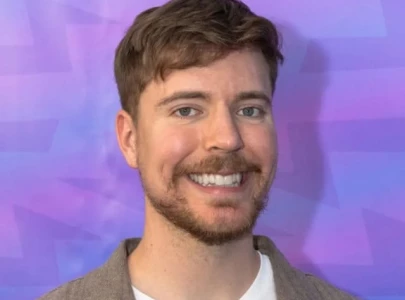
There is so much one can learn about a city by seeing it through the eyes of another person - and this is what happened on Sunday when people gathered at the Arts Council on the third and last day of the Karachi conference to watch five short films and documentaries highlighting Karachi's residents and heritage.
The film screenings were followed by a panel discussion with the films' directors and producers, other panelists, included Nosheen Ali, assistant professor at Habib University, Sabeen Mahmud, Rumman Zia of Cineaste One, a non-profit organisation and Dr Framji Minwalla from the Institute of Business Administration.

Ali started the discussion with a short film titled City By The Sea, one of the longest films of the day, it focused on land issues and mangroves along the city's coast.
"I think the narrative of the film was counterproductive to the issues being highlighted," said Ali.
"The very idea of dealing with up to 50 issues at a time did injustice to the cause." Minwalla, on the other hand, praised the efforts of the amateur film maker, and added that the films presented during the session were definitely taking a giant leap forward from what he had seen in the past. The panelists then proceeded to discuss Dil To Bacha Hai, which was appreciated by the audience and panelists.

Zia commented on the wide array of demographics in the film from katchi abadis to posh localities. "Film-making is like a marriage between an idea and technology," said Zia. "This film was definitely a good beginning if viewed from the perspective of the idea itself." Ali said that she liked the angles the film was shot at, adding that she could see exactly what was being taught in film school as it was reflected in the film.
Kurrachee, a short-film which aimed at showing the good side of Karachi raised a lot of questions from the panelists. Sabeem Mahmud of The Second Floor and Peace Niche, asked the director why he had decided to title the film Kurrachee.
Ali Hakim, the director, said that it had a lot to do with how it was pronounced and spelled in dictionaries worldwide. The film was a hit with everyone, even Zia who said that, he really enjoyed the way the film was made.
After Kurrachee, the panel moved on to A Pakhtun Memory. Ali asked the director why the film was filmed secretly. The director, Yaminay Chaudhri, explained that it would have been impossible for her and her team to work in an area like Shireen Jinnah Colony if someone knew what was going on.

One of the shortest films of the session was The Lost Jewish Garden. It was met with a general dissatisfaction among the panelist for being very short. Mahmud commented on the lack of an emotional link between the protagonist and the movie, adding that one could not help but wonder why he was there. Ali talked about wanting to know more about the people buried there. The director, Fahad Shaikh, explained the historical significance of the Jewish graveyard as the first mayor of Karachi, Jamshed Nusserwanji Mehta, is buried there. Zia appreciated the concept behind the film, adding that he never knew that there was a Jewish graveyard in Karachi.
Published in The Express Tribune, November 24th, 2014.
COMMENTS (4)
Comments are moderated and generally will be posted if they are on-topic and not abusive.
For more information, please see our Comments FAQ

















Rumman taught us screenwriting and direction. He is a crazy filmmaker but a great person to learn from.
Great to hear about this conference on Karachi and the ground breaking discussions.
@Rahul: Yea like the real Mumbai was portrayed in "Slumdog Millionaire", the 2008 '8 Academy Awards' winning blockbuster..
The real Karachi will be portrayed in "Welcome to Karachi", the 2015 Bollywood blockbuster.